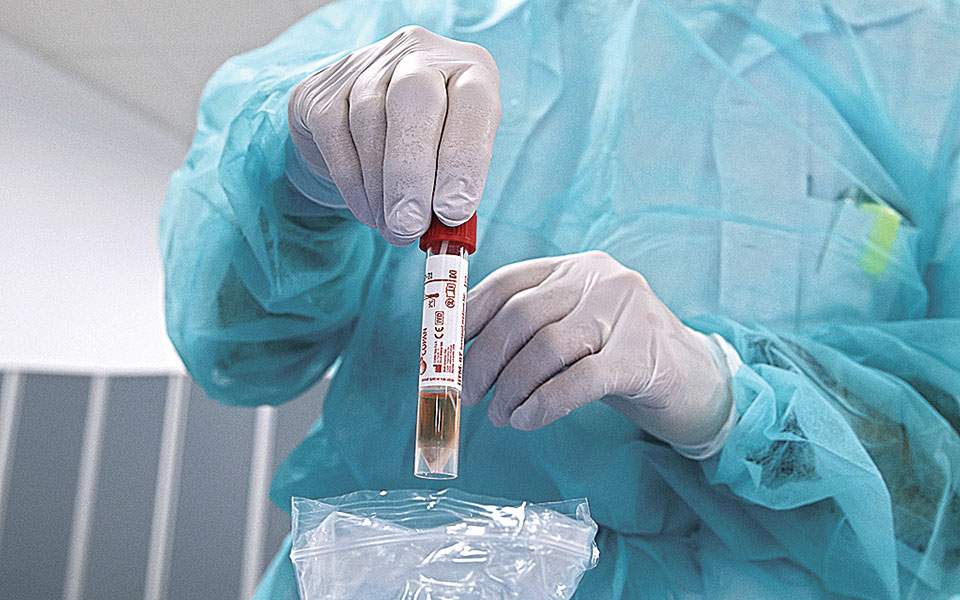New study calls for more Covid tests at borders, stricter distancing

A new scientific study by Greek and Italian experts puts forward a series of recommendations for halting the recent increase in coronavirus infections in Greece, including more and faster testing, and stricter physical distancing rules.
Headed by Professor Dimosthenis Sarigiannis from the Environmental Engineering Laboratory at Thessaloniki’s Aristotle University, the study calls for more tests to be carried out on incoming travelers at Greece’s border crossings and airports so as to weed out asymptomatic or pre-symptomatic carriers who may go on to infect local populations.
It also recommends that the government makes use of more university testing laboratories so that results can be available faster, within 24 hours, and infected patients can be placed in quarantine before they have a chance to transmit the virus to others.
Other measures that could be introduced to stem the virus’ upward trajectory, according to the models and calculations used by the experts, include postponing the opening of schools in early September and lowering the number of customers allowed into supermarkets and other busy retail stores at any one time. Attendance caps should also be imposed on weddings and other events that attract crowds, and admission to public transport reduced to 50% of capacity, the report said.
According to the model developed by Sarigiannis and his associates, the recent spike in infections can mainly be attributed to asymptomatic or pre-symptomatic carriers who brought the virus into Greece either returning from a trip abroad or from living in affected countries. Their study estimates that some 50-55 carriers entered Greece in the first days after the country opened up to tourism and foreign travelers in early July, going on to infect local communities.
Without new restrictions, the experts estimate a steady increase through August and September of around 80 new cases a day, bringing the total number of infections by end-September to around 11,500 and deaths to 260.





